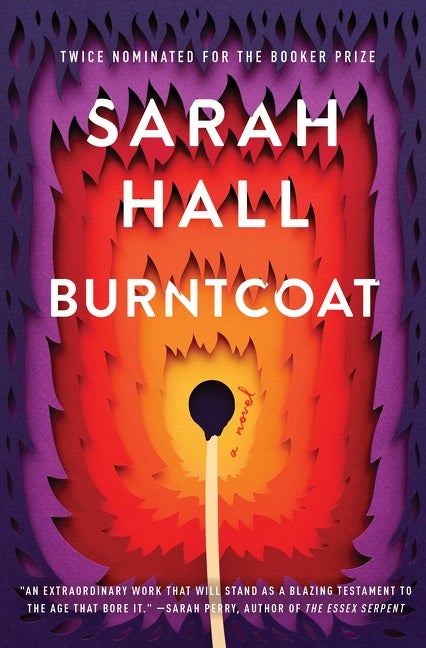Burntcoat by Sarah Hall (Custom House)
As we enter the seemingly endless third year of our global pandemic, the idea that great art can come from unspeakable loss eases the pain just a little. What an ideal device, then, for the heroine of Sarah Hall’s latest novel to be an expert in the art of shou sugi ban, a technique in which practitioners preserve wood through the act of burning it. The idea that strength and beauty can be byproducts of fire is a central metaphor of Burntcoat, a feverish reflection on devastation and resilience that the author began to write at the very beginning of lockdown.
Burntcoat’s narrator is Edith Harkness, a sculptor who specializes in feats of scale. She creates installations that are tremendous in size by carefully and painstakingly setting aflame the very material she’ll work with. Edith lives and works in Burntcoat, a warehouse-sized building that provides her the space she needs to make her creations and to house her construction tools. It’s also the place where Edith shelters with her new lover, Halit, when the threat of the rapidly spreading and viciously destructive AG3 virus brings life in their unnamed British country to a halt.
When we first meet Edith she’s 59 years old, a survivor of AG3 whose remission from the illness appears to be ending once and for all, but throughout the novel Edith’s memories strike and disorient the reader just as they do her. We see glimpses of Edith in various phases of life, from her childhood raised by a mother who suffered a life-altering stroke, to her life in art and the thrill of being able to work on her own terms, to the moment when the illness looms large.
The urgency of Hall’s prose makes for a slim novel with maximalist feelings: the ecstasy of creation, the smolder of sex, the visceral pain and filth of sickness. The ample white space on the pages of Burntcoat mirrors the wide open space of Edith’s home, an escapist thrill in and of itself for those of us who’ve been cooped up over the past years. Burntcoat works, then, as a not entirely pretty kind of pandemic fantasy novel, one that promises that art can elevate us even if it can’t save us.



